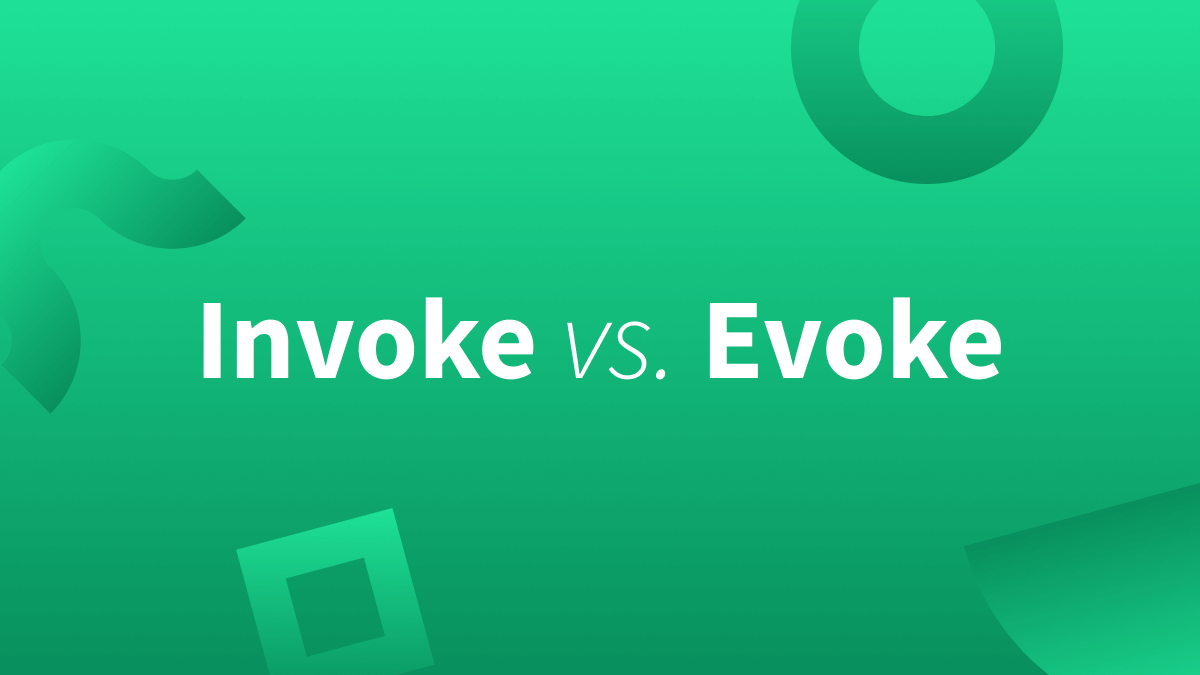- Evoke means “bring or recall to the mind.”
- Invoke means “to appeal to or cite as an authority.”
- ○ He invoked the first amendment right of freedom to express himself.
- ○ The startling announcement evoked feelings of uncertainty.
“Evoke” and “Invoke”
We understand why you’re here. Evoke and invoke can cause a lot of confusion, not only because they sound and are spelled similarly, but because there can be some overlap in their meanings. We’re going to go over what these words mean and when to use them. Plus, we will give you a little trick that may help you remember the difference between evoke and invoke.
“Evoke” vs. “Invoke”
Evoke and invoke are both derived from Latin words. Evoke came from “evocare,” which means “to call forth.” Invoke, on the other hand, came from the word “invocare,” which means “to call upon.” As you might have noticed, both words share the root “vocare,” which means “to call.”
We know, we know. That’s confusing. Here’s how these words are commonly used today:
Using “Evoke”
Evoke is a verb that means “bring or recall to the conscious mind.” It’s typically used when referencing feelings, reactions, or emotions.
That movie evoked feelings of nostalgia.
When something is evocative (the related adjective), that means it “brings strong images, memories, or feelings to mind.”
Many people say The Color Purple was an evocative novel.
Using “Invoke”
Invoke is a verb that has a few definitions. Usually, it’s used as a verb that means “to call on or pray to a deity, spirit, or god.”
Gloria played the Ouija board in hopes of invoking a spirit.
It can also mean “to cite or appeal to as an authority for an action in support of an argument.” As you might have imagined, it’s common in legal settings to call upon a law, rule, or authority.
She invoked her right to remain silent.
How To Remember the Difference Between “Evoke” and “Invoke”
There’s an overlap because technically, evoked can also be used to call forth a spirit, deity, or god. This just makes it much more challenging to remember the difference between evoke and invoke. Just try to keep these points in mind:
- Think of evoke as meaning “to call forth,” and invoke as meaning “to call upon.”
- Nowadays, evoke refers to recalling certain emotions, feelings, and memories.
If you want to write flawless and evocative texts, try invoking LanguageTool’s help. This superior writing assistant will check your text for spelling and grammar mistakes as you write and offer stylistic improvements. Try it out for free.

